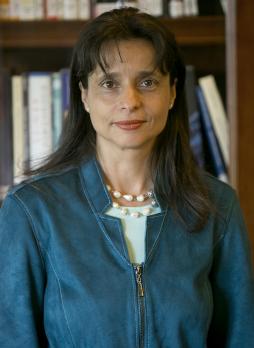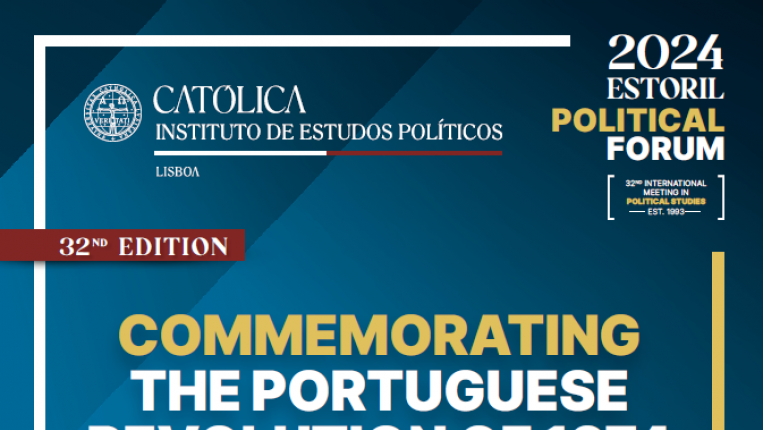
The Institute for Political Studies has an inclusive Catholic educational mission of building hope and peace along a path defined by the values of truth, justice and beauty. It does not seek these values in the abstract, but in the concrete, and in solidarity with others.
We are proud of every student who graduates here and we are committed to a liberal education that is open to the world, but conscious of its European and Portuguese roots and which remains, as George Steiner suggested, "an idea of sharing knowledge".
The IEP was founded as a unique school on the national (and even international) scene, characterised by its distinct identity, which is evident not only in the scientific area of Political Science and International Relations, but also in a whole culture of study - which can be seen, for example, in the introduction in Portugal of the area of the Great Books Tradition, or the link it established with EUROPAEUM from the outset, bringing extraordinary professors from all over the world to the university, or the Estoril Political Forum, which has grown year after year and has already become a true reference point - with memories that will certainly be unforgettable for all our Bachelor, Masters and Doctoral Graduates.
A value that we consider fundamental at the IEP, a virtue that is generally relegated to the background and which is very difficult to achieve, especially today: the value of moderation.
Without moderation there are no free, open and plural societies, no dialogue, no tolerance and probably no politics as we understand it. There is no regulated and permanent conversation, as an intelligent way of learning, but also of preserving our idea of civilisation and citizenship. This value shines through in many of the IEP's projects, whether scientific or educational, and is even reflected in the great dynamism of its Students' Academic Association and all academic interaction. Moderation linked to freedom of expression is of enormous importance at the present time.
We live today in a time of enormous turbulence that is partly the result of a new complexity of voices, causes and information, projected at high speed and in both real and artificial prisms, revealing the asymmetries of a global simultaneity and generating a perception of uncertainty, but also a confrontation between radical certainties, new extremisms, nationalisms and inaudible violences.
Hannah Arendt also reminds us that this space of direct, brutal and total violence contrasts precisely with a classic idea of the POLIS understood as a space of rules, rights and duties, but also of freedom and critical dialogue where passions can be appeased and violent disputes can be transformed into peaceful conflict management. This doesn't mean that the order of the POLIS can't be violent, nor that it is perfect, but it does establish a forum for encounter with a view to constant re-conciliation, i.e. a series of reunions, readjustments with the possibility of changes and transitions based on the "rule of law". Politics is born from this idea of the city.
Politics founded on the principle of the rule of law and freedom is one of the most important inventions for navigating the turbulence of the present, which doesn't happen for the first time, even if it happens for the first time like this - or for the first time to us.
In this context, our commitment as professors or as the Institute of Political Studies is threefold:
- to know how to teach and transmit the value of free, plural, open and inclusive societies,
- to know how to train our students in the importance of studying, thinking, questioning, participating, being attentive, working hard and taking pleasure and pride in the challenges of science and research.
- and to know how to "risk" passionately in hope, as Pope Francis said, a hope that, among us, lies in the continuous pursuit of knowledge.
Founded in 1996 by Professor João Carlos Espada, the IEP has grown year after year in a "spontaneous" way, as its founder always imagined, but maintaining its academic matrix of principles and values that he himself summarised in the following words that continue to stimulate us:
"IEP is an integral part of the Portuguese Catholic University and has assumed this identity from day one. The Catholic University has the mark of excellence among us - and this has benefited the IEP from the outset. But it's not "just" this secular or entrepreneurial dimension that we should remember. Although it is very important, it actually stems from something deeper. Universities were born Christian, that was their origin in the European Middle Ages, and not in the Enlightenment of the 18th century, as is often said today. It was this origin that marked the university's sense of mission: the search, through a dialogue between faith and reason, for the Good, the True and the Beautiful, as entities outside the whim of each individual. Through conversation and mutual criticism between our fallible perceptions, we aspire to something that is beyond each of us. This is what inspires the pursuit of excellence."
Prof. Mónica Dias
Director of the Institute of Political Studies, Universidade Católica Portuguesa



